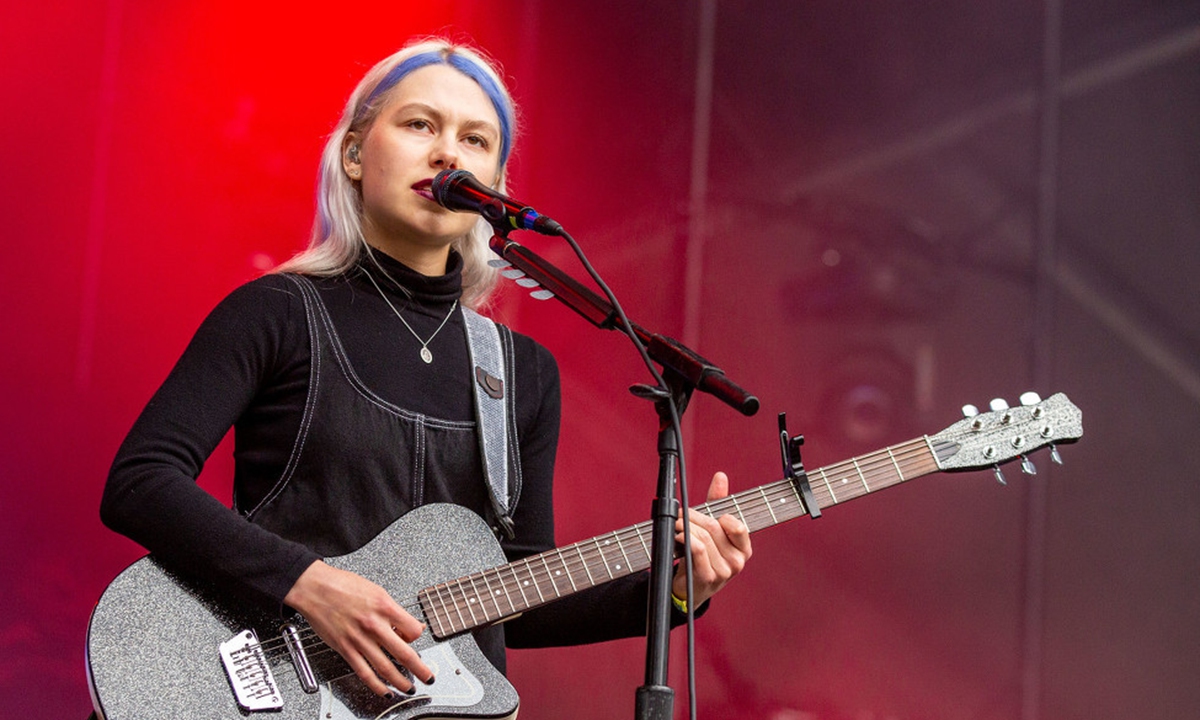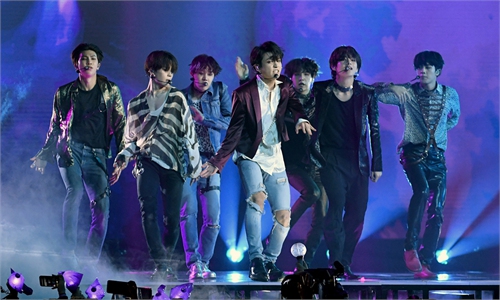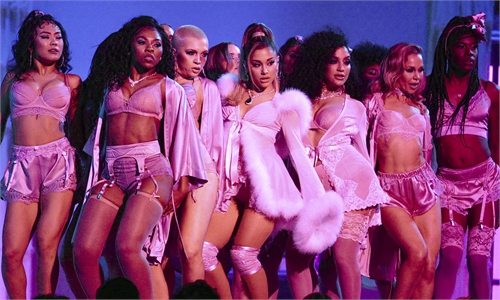ARTS / MUSIC
Long sidelined at the Grammys, women in rock claim their due
‘Shifts in consciousness’

Phoebe Bridgers performs at the Outside Lands Music Festival in San Francisco on August 10, 2019. Photo: IC
The Grammys' rock categories normally ooze testosterone, but in 2021, women-led acts have seized the mic.It is a significant shift that comes just a few years after Neil Portnow, former CEO of the Recording Academy, was roundly derided for saying women should "step up" to achieve fair representation in the music industry, in which they've long been sidelined.
For the first time ever, the Best Rock Performance category - a field that's existed since 2012 - is comprised entirely of solo women or female-led acts: Fiona Apple, Phoebe Bridgers, sister group Haim, Brittany Howard, Grace Potter and the Adrianne Lenker-fronted band Big Thief.
Lenker, Apple, Howard and Bridgers are all also up for Best Rock Song, and the three latter acts received nominations for Best Alternative Album. Potter scored another nod for Best Rock Album.
Women molded rock's evolution - blues pioneer Big Mama Thornton, for example, was the first to record "Hound Dog," the seminal hit now strongly associated with Elvis Presley.
But in the mid-20th century, the fledgling genre's image "pretty quickly got taken over by men," said Evelyn McDonnell, a scholar focused on pop culture, music and gender.
"You really saw that division: What the lads with the guitars did was rock, and what girls in the bouffants did was Motown or pop," the Loyola Marymount University professor told AFP.
"There's this whole sexist way in which rock gets defined as white men with guitars."
'Out of touch'
Yet women have always been influential in rock: Patti Smith, Kim Gordon, Stevie Nicks and Debbie Harry are just a few key household names that have led the way.
While Bridgers and the Haim sisters are relative newcomers on the scene, Apple - whose 2020 record Fetch The Bolt Cutters was hailed by the music authority Pitchfork as "an unyielding masterpiece" - first found success in the late 1990s, with Potter breaking out a few years later.
For much of Grammys history, the rock prizes were separated by gender, with the Academy in some odd years merging the fields - citing a lack of female acts to nominate.
Starting with the 2012 ceremony, the Academy stripped gender distinction altogether, in rock along with pop, R&B and country.
Since then, in the Best Rock Performance category, only one woman has taken home a trophy: Howard, who won as the frontwoman of the band Alabama Shakes in 2016.
The Recording Academy has long been accused of supporting white, male acts at the expense of everyone else - and in recent years has appeared to take baby steps towards change.
"The Grammys have clearly been called out on the carpet" after decades of being "woefully out of touch," McDonnell told AFP.
And it's not just in rock: 2021's women nominees also dominated the categories for country music, a genre that has been roiled in controversy in recent years for its white, macho bent.
A concerted feminist movement within country has forced that tide to start turning - and at 2021's Grammys, Academy voters nominated four solo female acts in the Best Country Album category along with one group of male and female singers.
And the rap world, long stereotyped as a boys' club, also has seen a bevy of female stars make waves.
Cardi B won Best Rap Album in 2019, and Megan Thee Stallion - who McDonnell said "is taking a lot of the oxygen out of the room for the guys" - is poised to post a banner night on Sunday, with four nominations including for the coveted Best New Artist prize.
'Shifts in consciousness?'
Still, just days before the gala, which will be mostly virtual due to the pandemic, a new study from USC's Annenberg Inclusion Initiative showed the stark numbers for women in music have not budged all that much since it released a similar study three years ago - which had prompted vows of reform.
Female artists accounted for approximately one-fifth of the top Billboard hits in 2020 - down slightly from 2019's 22.5 percent.
The study also examined the Grammy nominations between 2013 and 2021, finding that out of 1,359 nominees, just 13.4 percent were women - though the ratio of female nominees jumped significantly from 2020 to 2021 to slightly over one-fifth.
Revelations of infighting have also shaken the institution's efforts to shed its out-of-touch image: In 2020, its first female CEO, Deborah Dugan, was fired over alleged bullying.
Dugan claimed she fell from grace after raising concerns ranging from voting irregularities to sexual harassment and alleged rape.
Earlier in March, the Academy announced it was conducting a university-partnered study to analyze women's representation in the music industry, with data intended to improve accountability and facilitate reforms.
For McDonnell, the legions of women in the rock and country fields are long overdue - and perhaps a sign of real change.
"I hope these are shifts in consciousness - not just affirmative action-like glitches," she said.



